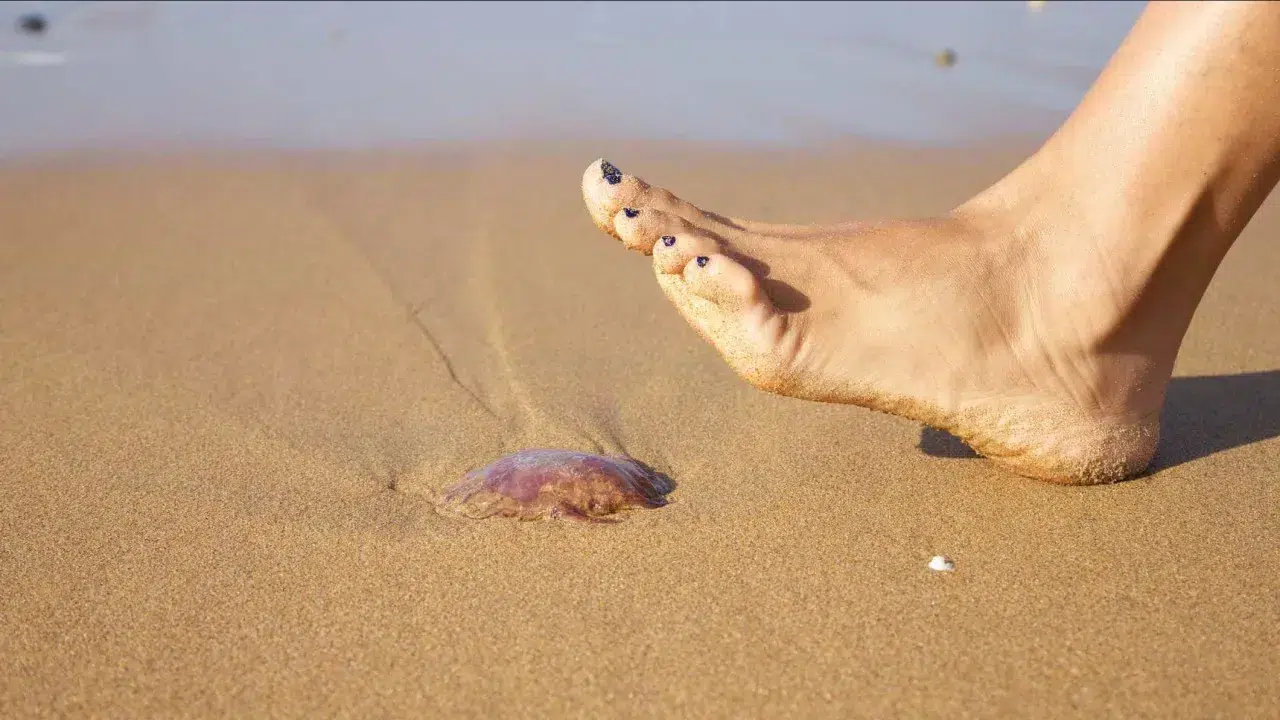
Beach trips are synonymous with vacations, relaxation, and ocean swims. However, it is important to stay vigilant, as you might encounter a jellyfish sting.
What should you do if stung?
The Directorate-General of Health (DGS), via its social media platforms, shared some important advice for those who may be stung by a jellyfish.
- Rinse with seawater without rubbing;
- Avoid using fresh water, vinegar, or alcohol;
- Apply cold/ice;
- Do not touch the tentacles directly;
- You may attempt to remove tentacles using plastic material;
- Contact the Poison Information Center (CIAV) at 800 250 250.
What are the common symptoms?
- Pain/burning;
- Swelling;
- Redness;
However, in cases of breathing difficulties, lip swelling, seizures, loss of consciousness, chest pain, and/or extensive red marks, you should call 112.
How to prevent it?
- Check for warnings at the beach or on the GelAvista website;
- If spotted, inform the lifeguard;
- Keep children under supervision;




